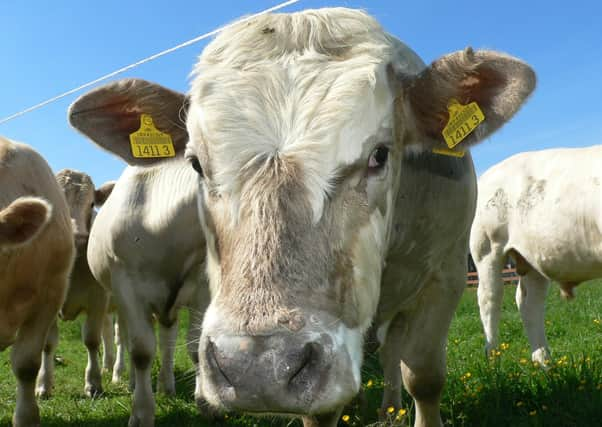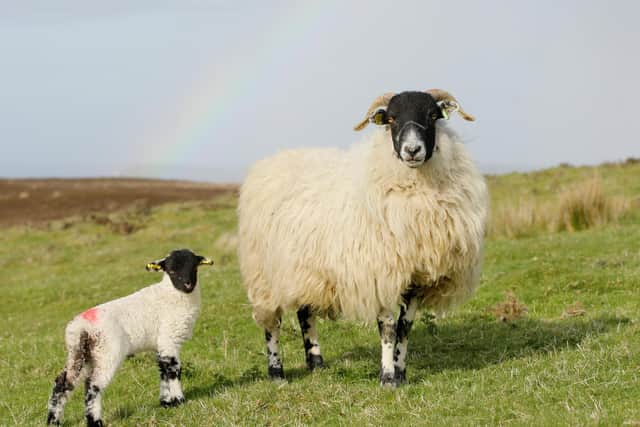UFU cattle and sheep sector summary


The Union has 25 local Groups and every two years at their annual general meeting, they elect representatives to the Union’s central policy committees.
Policy officer Daryl McLaughlin is Secretary to these two central committees and approximately 25-30 farmers sit on each of these committees.
Advertisement
Advertisement
The chairs: These central policy committees are beef and lamb and hill farming. Sam Chesney is a lowland suckler and beef and sheep farmer from Kircubbin and chairs the beef and lamb committee. Nigel McLaughlin is an upland suckler and beef and sheep farmer from Dungiven and chairs the hill farming committee.


Farm incomes: Over the past few years farm incomes have been extremely low for the beef and sheep sectors in both lowland and less favourite areas.
This low profitability has created several significant challenges for the beef and sheep sectors.
Both these central policy committees have been working tightly together by identifying issues and trying to come up with solutions that will benefit, help and assist cattle and sheep producers going forward.
Advertisement
Advertisement
COIVD-19: The latest COVID-19 pandemic has further added to the pressure on cattle and sheep farms and the Union has been working to identify the financial loss to these sectors since the lockdown measures were introduced mid-March.
The financial effects of this pandemic have been hitting the beef and sheep sectors long before the lockdown measures came into effect.
China was the first country in the world to lockdown and this happened in December 2019 and this has had repercussions on the sectors since.
Closure of the foodservice sector locally and across Ireland and GB has had significant effects on the markets particularly the beef sector. The Union submitted evidence to the Environment, Food, and Rural Affairs (EFRA) Committee in London a few weeks ago regarding the issues that COVID-19 has created.
Advertisement
Advertisement
There is now a lot of concern within the sheep sector, particularly the wool sector.
The Union has recently written to Minister Poots to express concern around this and has been working closely with stakeholders daily to establish the losses within the beef sector.
The Union has been lobbying with the DAERA Minister Edwin Poots and his Officials and expressing concerns beef and sheep farmers have due to the COVID-19 disruption and has been pushing for financial support.
There has now been an allocation of £25m for the farming and horticulture sectors from the department of finance.
Advertisement
Advertisement
Hopefully, there will be positive news to come in the coming weeks how this money will be spent, which would be most welcome to both lowland and upland/hill farmers.
Brexit, trade talks and food security: There was a bit of a slow down in the UK/EU negations as the COVID-19 lockdown was announced across the EU, but talks are ongoing and there seems to be little headway yet. The Union had been lobbying for a few years for the UK Government to ensure their global tariff schedule for the beef and sheep meat sectors was equal to the EU tariff schedule. In the first draft of the global tariff schedule the Government reduced the tariffs significantly for beef but since has reviewed this. The UK Government has now produced a second version and has changed it from euros to sterling and has brought the tariff level back up to the same as the EU one and this is a significant win for beef producers. Food security is highly important to the country as a whole and the UK is only approximately 58% self-sufficient. The beef sector is approximately 75 per cent self-sufficient so there is lots still to consider. The Union is now looking at how Brexit, trade talks and food security go hand in hand and trying to seek the best possible outcome for beef and sheep producers on the way forward. While there were not the gains we asked for within the recent agriculture bill we certainly have raised the issue up the agenda and the fight is not over yet.